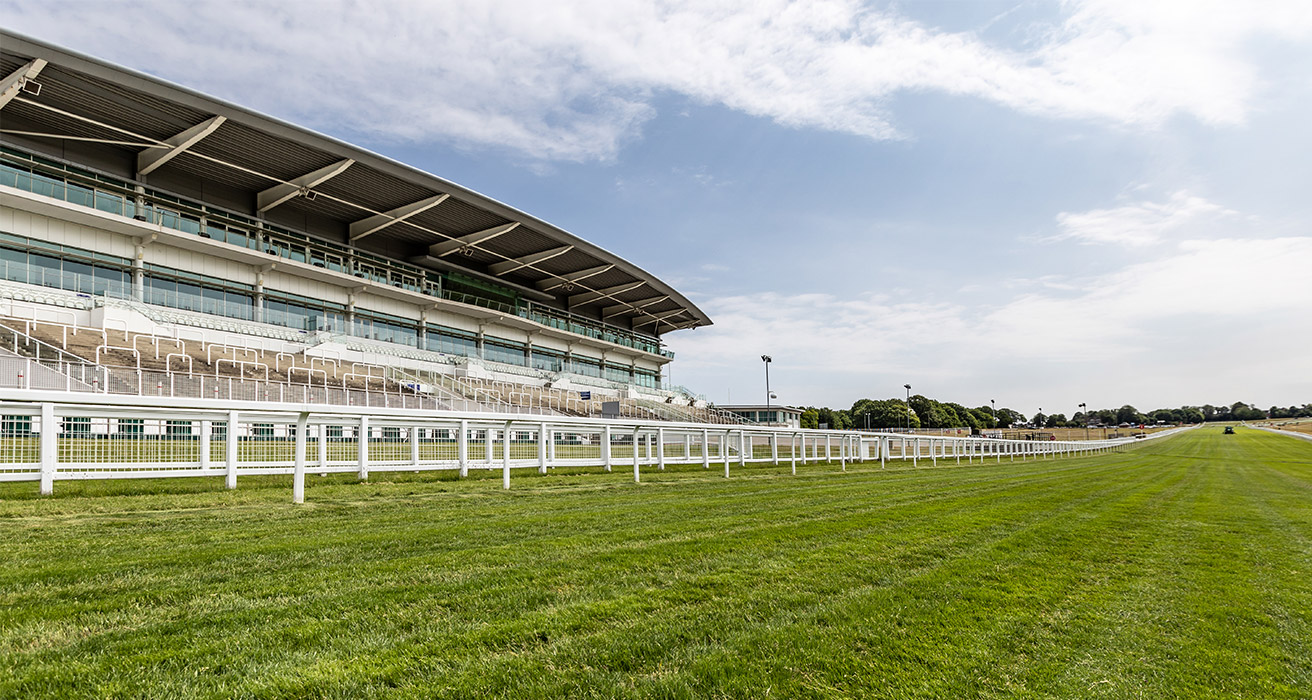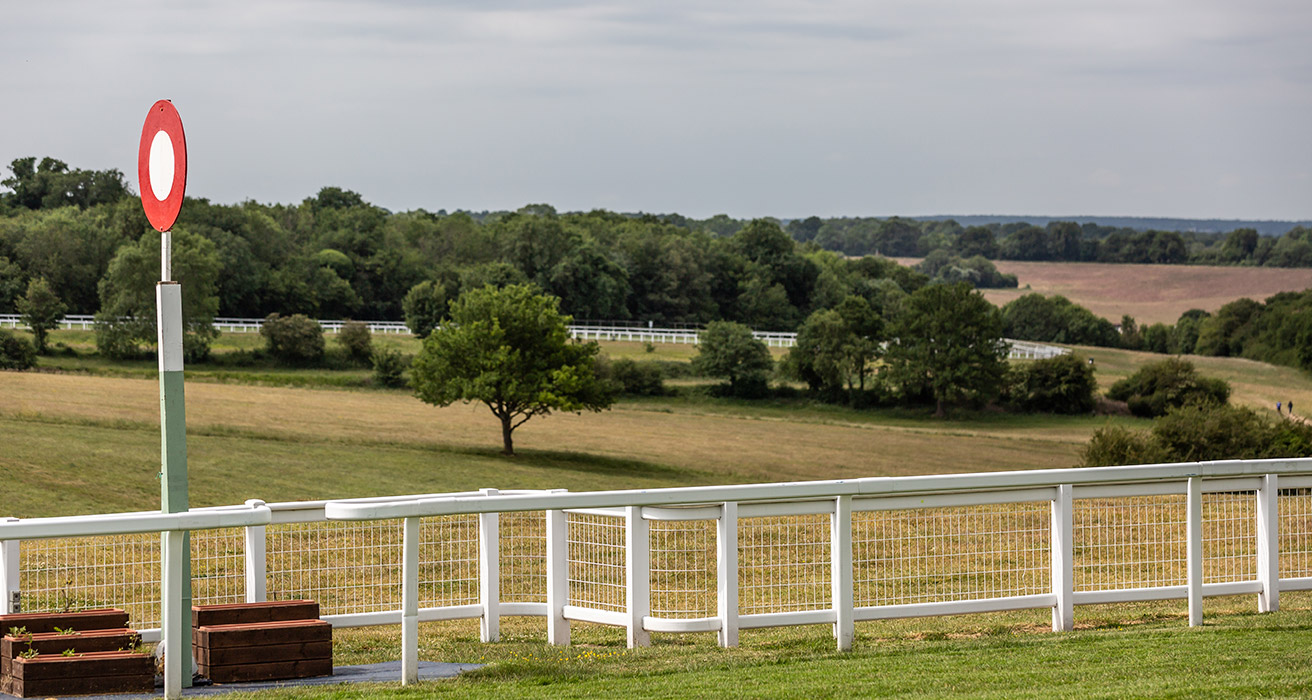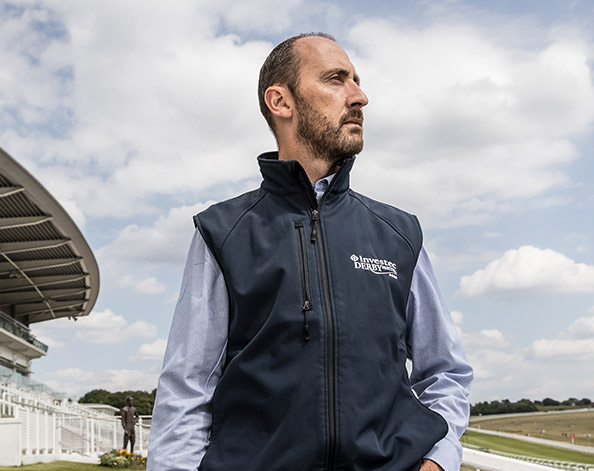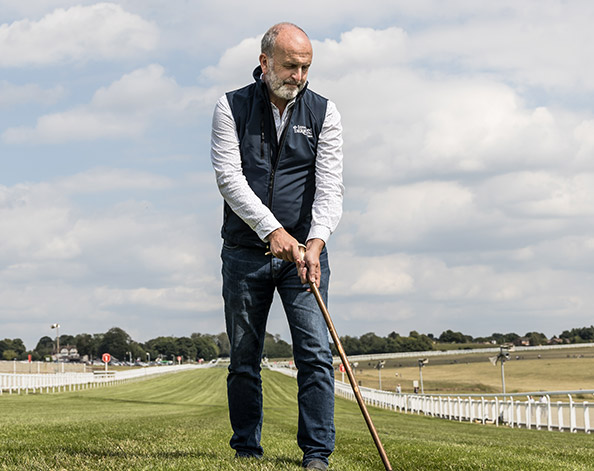
22 Jun 2020
How Epsom Downs staged the Derby in 2020
A look behind the scenes of the Investec Derby to see how the event adapted in challenging times
“It never rains on Derby day.”
Simon Durrant is the general manager of Epsom Downs Racecourse. He's worked at Epsom for the last 12 years, so it's fair to say he knows a thing or two about the Derby's illustrious history.
However, it did rain on Derby day this year. Or at least it rained on Saturday, 6 June – the day the Investec Derby Festival was supposed to take place. By then, the UK's longest continually run sporting event had already been postponed because of Covid-19. The cancellation was the first in 240 years.
“When we heard about the pandemic, there was concern that we were going to lose one of the classic sporting occasions of the year. But with a lot of grit, hard work and determination, we've got it back,” Simon says.
On 30 May, horse-racing was one of the first sports to be given the green light when the government announced it could restart the following Monday. The 6 June was obviously out of the question for the Derby, but Simon and his team already had a new date in mind – 4 July – and with it, a 35-day deadline.
Reinstating an event that usually draws 36,000 ticketed spectators was never going to be possible in the era of social distancing, so the plan was to stage the race without guests. However, with the racecourse sitting on the public land of Epsom Downs, there have been other challenges to overcome.
First, Simon had to apply to the Conservators to gain approval, both for the change of date and for an extensive exclusion zone to be erected around the hill and surrounding areas. This was to prevent large numbers of people gathering on grassland at the centre of the course, as they normally do.
The Conservators manage Epsom Downs through an Act of Parliament. The committee is made up of borough councillors, as well as representatives from Jockey Club Racecourses and the Horserace Betting Levy Board.
“Fortunately, our application was really well received by the Conservators, who see Investec Derby as something important and iconic for the local community,” Simon says.
He now views the rain on 6 June as a positive omen. A sign that, perhaps, the bad weather and uncertainty is to pass. In the meantime, he’s firmly focused on making this year's Derby one to remember.
“It's going to be different and it’s going to be surreal,” he admits. “But we haven’t lost it. This will still be the 241st running of the Investec Derby.”

The Derby legacy
To understand the desire for the race to go ahead you have to consider the prestige of victory within the horse-racing industry. Winning the Investec Derby is the jewel in the crown of any horse-racing professional. It's proof that a jockey and horse have what it takes to perform at the very highest level.
This largely comes from the unique challenges of the course which include a 184ft climb from the start to the seven furlong marker, a notoriously sharp bend at Tattenham Corner and a six-yard camber on the home straight. The race has been held on another course just twice during its history, when it was moved to Newmarket during the two world wars.
Horses must be aged three-years-old to compete, meaning that competitors have a limited window of opportunity to enter. To win, they need the right mind-set, training and temperament to perform under pressure. For the rider, precision, timing and ambition are all vital ingredients for success.
“The Investec Derby is the world's greatest flat race. It really is the supreme test of the racehorse,” says Simon. “If you're an owner, a trainer or a jockey, it's the one you want to win.”
Behind the scenes, Simon and his team always work against the clock to make sure everything runs smoothly on the big day – and this has enabled them to adapt to the disruption caused by coronavirus.
“Many racecourses get months of planning and build time," Simon explains. “We don’t have that luxury because we work in an open area on the hill. We usually get a golden 14-day period to build our event.”
How will the 2020 Derby be different?
With the event confirmed to take place behind closed doors in a sterile area, even Her Majesty Queen Elizabeth II will not be able to attend, in spite of having only missed two Derby days in nearly 75 years.
You could be forgiven for assuming less crowds means less work, but that hasn't been the case. Simon must still work closely with emergency services personnel and many other key stakeholders to mitigate any risks.
Around three-and-a-half miles of temporary fencing must be put up to form the exclusion zone at the course. Stewards need to be hired, trained and deployed, and extensive signage will be erected in the area to engage with the local community.
As we speak, discussions are still going ahead as to whether horse owners will be allowed to attend the race and it’s certain that jockeys will be given designated spaces on the day to keep them apart from others. It is likely that two-and-a-half metre pods will be in place in the weighing room, with both showers and saunas prohibited to prevent the spread of infection.
Preparation of the course
Outside on the track, the condition of the grass must peak at the right moment.
“Ultimately, we're aiming for what you might call perfect 'going' and perfect grass coverage on the day of racing,” explains Andrew Cooper, who is clerk of the course and head of racing at Epsom.
A delicately balanced combination of fertiliser, irrigation, deep-tine aeration and scarification helps cultivate the course until it reaches top condition just in time for race day.
“The big challenge for us this year has been timing; altering our timing for the preparation of the track in view of the pandemic," Andrew says. “It was challenging to work with so much uncertainty, but I'm blessed with a very, very good team.”
In practice, Andrew drafted in manpower from the other courses he manages to prepare the track. The team worked with estimated event dates in mind, with 4 July being the first in the calendar. Their schedule for fertiliser and irrigation was moved back four weeks from its original date and has had to contend with the driest May on record. He says the course is now “looking great”.
“From my perspective, the expectation is the same. The trainers and jockeys will still be here on the day, and they’ll be the ones who will be walking the course on Investec Derby morning just to check we've got it just so, and we're calling it correctly and all that sort of thing. They’ll want to know if it will suit their horse and how is it going to ride. My responsibility hasn’t changed.”

Maintaining the magic of race day
However, both Simon and Andrew admit competing behind closed doors will have an effect on jockeys and horses. Many jockeys thrive off the vibrant atmosphere of an electric Derby day. Even some of the horses are known to perform better in front of a cheering crowd.
But Andrew is confident the jockeys have the professionalism, determination and mental strength to rise to the occasion.
“Once the race starts, their focus will be solely on giving the best performance they possibly can. They'll get the blinkers on and concentrate on the race,” he explains.
“The last three to four months have been so unprecedented and challenging for everyone and hopefully bringing back an open-air sport like this can provide a semblance of normality. The Investec Derby is something very special; it’s a tradition – and it’s happening.”
Read more:
Browse articles in


